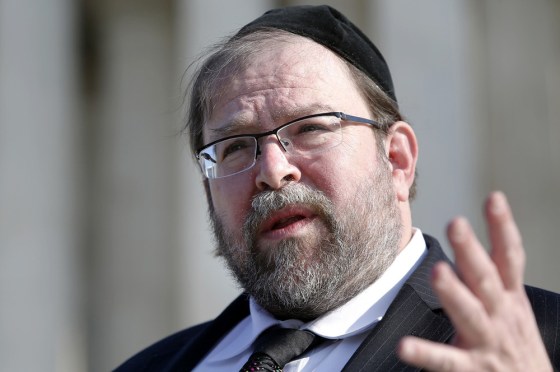The U.S. Supreme Court seemed reluctant Tuesday to expand the right of airline passengers to sue when they're terminated from frequent flier programs, judging from comments by the justices in the case of a man who was dumped from the WorldPerks program of Northwest Airlines.
Rabbi S. Binyomin Ginsberg of Minnesota, who travels widely to lecture on education, became a member of Northwest's frequent flier program in 1999. But in 2008, as the airline prepared to merge with Delta, he was notified that his WorldPerks status was revoked because he had, in the airline's words, "abused the program."
In one seven-month period, for example, the airline said that he filed 24 complaints and "continually asked for compensation over and above" Northwest's guidelines.
A customer representative later e-mailed him, quoting from the WorldPerks terms and conditions that said membership could be terminated for "improper conduct as determined by Northwest in its sole judgment."
When Ginsberg sued, the airline said his case was blocked by a federal law, the Airline Deregulation Act of 1978, which barred the states from interfering in decisions about airline prices or services.
The Supreme Court ruled in 1995, in another case involving a dispute over frequent flier programs, that the federal law allowed customers to sue only when they claimed that the airline had breached its own contract with passengers.
Accordingly, a federal district court tossed out Ginsberg's claim that Northwest violated the terms of its frequent flier agreement. The court noted that the WorldPerks contract allowed the airline to cancel a member's account whenever it found "in its sole judgment" that a passenger had abused the program.
But a federal appeals court reinstated the lawsuit, ruling that Ginsberg could make a different claim — that Northwest violated a state law requirement that a contract must be carried out in good faith, with fair dealing.
The lawyer for the airline, Paul Clement of Washington, D.C., told the Supreme Court Tuesday that even the fair dealing requirement is preempted by the Airline Deregulation Act.
"You can't run a national, let alone international airline, if every one of your judgments about taking an unruly passenger off or taking out an abusive customer is going to be second-guessed by a jury."
Such an outcome, Clement said, would defeat the federal law's goal of taking the states out of decisions about airline operations.
That argument seemed to resonate with the court's conservatives.
"So if the airline says you have to get off the plane if the flight attendant tells you to do so, there is going to be a good faith obligation attached to that, so you can challenge those decisions in court?" asked Justice Antonin Scalia.
"The whole point of the preemption provision," said Chief Justice John Roberts, "is that it's for the federal government to determine, not for different state laws, what promotes the purposes" of the Airline Deregulation Act.
Disgruntled passengers like Ginsberg, Clement told the court, can take their objections to the Department of Transportation, which last year fielded 289 complaints.
Arguing for Rabbi Ginsberg, Adina Rosenbaum of Public Citizen said holding airlines to the implied terms of their contracts is consistent with the goals of the federal deregulation law. "The competitive market depends on the ability of both passengers and airlines to enforce their agreements."
Sixteen states urged the Supreme Court to rule for Ginsberg. They note that frequent flier programs now offer benefits far beyond airline services. Using credit cards has now become the dominant means for earning miles, and airline miles can be used to get discounts on hotel stays, car rentals, and restaurant meals, they say.
A ruling is expected by late June. The case is Northwest v Ginsberg, number 12-462 on the Supreme Court docket.
